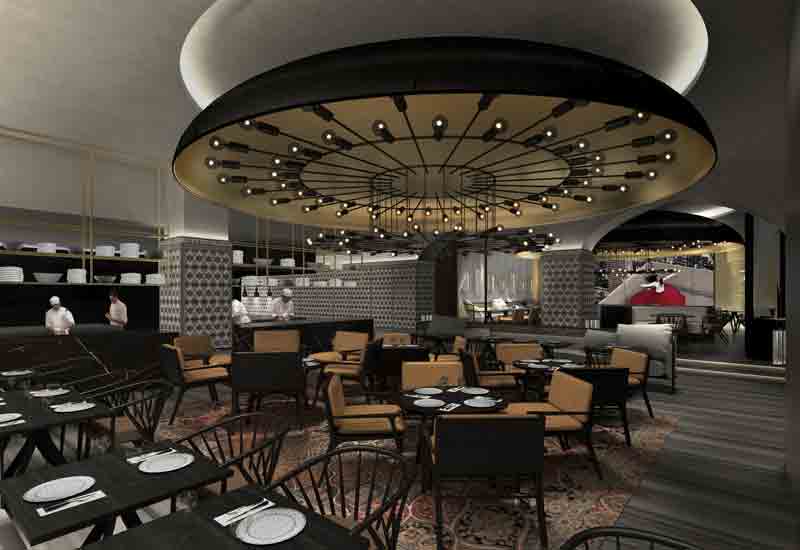The long Gulf summer ushers in high temperatures, lower hotel revenues and presents a human resource conumdrum — what should hoteliers do with staff that are under-utilised?
The fact that the Holy Month of Ramadan will continue to coincide with the summer months for at least another couple of years, brings additional operational challenges, as historically, only one F&B outlet remained open during the day.
So is this a prime opportunity to send employees away on annual leave? If so, there is still the unavoidable question of how to maintain hotel ‘corporate’ service standards, quality and brand values, while reducing expenses and maintaining profitability. Outsourcing certain F&B functions could well be the optimum seasonal solution.

| Advertisement |
The F&B operation is hugely labour-intensive and payroll heavy — and in recent years this has given rise to a growing predilection for third-party operator partnerships.
This offloads a large portion of operational risk to the operator, provides tenant income and alleviates manpower requirements; but it isn’t to everyone’s taste as there are certain considerations such as potential loss of control and reputation management to consider.
During Ramadan specifically, when there are reduced operating hours and fewer operational outlets during daylight hours, along with restrictions for nightclubs and bars, the opportunity is there to bring in an experienced third party operator to manage a Ramadan tent, for example.
But, despite the overall slowdown, hotels often face immense pressure from guests and owners, to ramp up their iftar and suhoor celebrations, in addition to the calendar of summer events, and even Dubai Summer Surprises activities, when local residents and visitors alike look for the air conditioned comfort of shopping malls and hotels.
That’s the bigger picture scenario, and the seasonal staffing issue is perhaps a good way to gauge the potential of a future third party tie-up or a longer-term F&B outsourcing contract.
Outsourcing allows hotel operators to manage their labour costs, with outsourcing contracts saving on man-hours as resources are only hired as and when needed, bringing in the right people with the right skillset.
If we go back-of-house, the stewarding department is the obvious starting point. Attention can be focused on putting qualified, proactive temporary staff in place that, while they still require specific operational training, do not need customer service skills training.
In fact, primary outsourcing can start in the supply chain where having the right partner to purchase high quality products at the best price is a way to effectively reduce costs.
Similarly, with a huge volume of food waste generated during the summer months and more specifically during Ramadan, it is vital that this is monitored in order to influence future orders and thus save money, but that’s another issue entirely.
By bringing in outsourced multi-skilled staff for Ramadan, for example, frees up existing non-vacation team members to be cross-utilised in the operation, such as assisting with increased room service orders or supplementing the nightly iftar line-up.
It’s even been mooted that the entire room service function could be outsourced to an external catering company. Now that may sound a little extreme, but with a well-stocked mini-bar and ample in-room tea and coffee making facilities, it is well worthy of consideration, especially with low occupancy levels.
Being able to negotiate a flexible contract allows hoteliers to control costs more effectively and presents a resource that can be tapped into during the summer/Ramadan vacation months and then, equally, add value in the form of trained bodies to help out in the busy winter season.
Cost controllers may raise an eyebrow at the thought of outsourcing, but it doesn’t mean that you have to commit to a lengthy, full service contract. It can be a pick and mix from a tailored menu of services that are adapted to an individual property’s needs, and scaled up or down to support the hotel’s seasonal occupancy peaks and troughs.
According to the DTCM, Dubai has now reached 100,000 hotel rooms and there is another 38,000 hotel rooms to come on stream by the end of 2018. Yes, that’s a 38% increase in just two years, while on the other side of the equation, Dubai attracted 14.2 million visitors in 2015, a 7.5% increase over the previous year, with a forecast of 7-9% growth for the following years.
So clearly during the build up to Expo 2020, it is likely there will be a period of adjustment, before hotel room supply and visitor demand balance out. In the meantime, Ramadan and the summer months will challenge hotel RevPAR and F&B revenue targets, so it would be remiss of any financial controller, if any potential savings that were identified, were not maximised.
Finally, hospitality consultancy STR reckons that hotel F&B revenues across the Middle East average out at a healthy 37% of total hotel revenues. This is the highest figure globally and with the cost of servicing F&B the lowest worldwide, at just under 60%, seasonal outsourcing areas of the F&B operation, adds value in both financial and operational terms.
About the Author:
Markus Oberlin is CEO of Farnek. Contact the team at info@farnek.com.










 Search our database of more than 2,700 industry companies
Search our database of more than 2,700 industry companies









